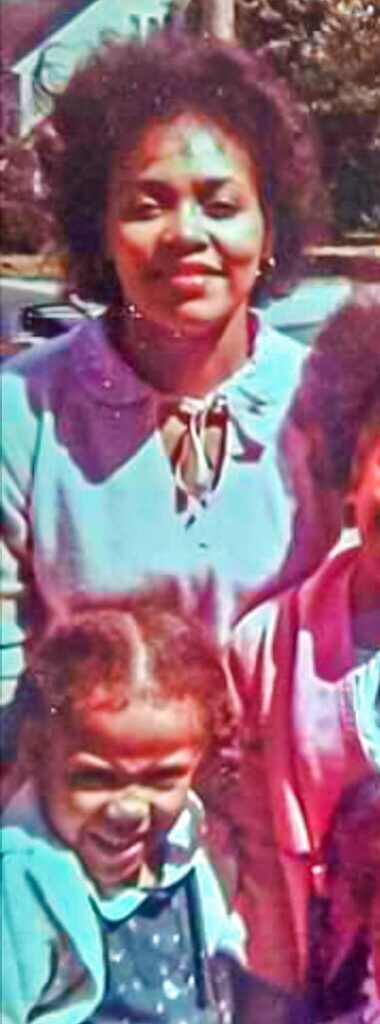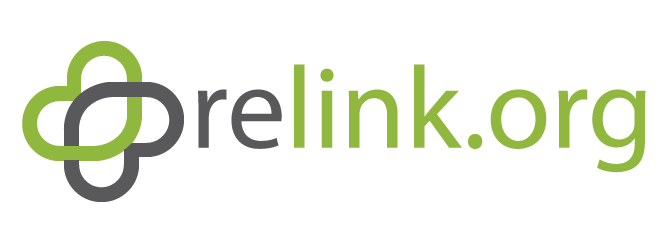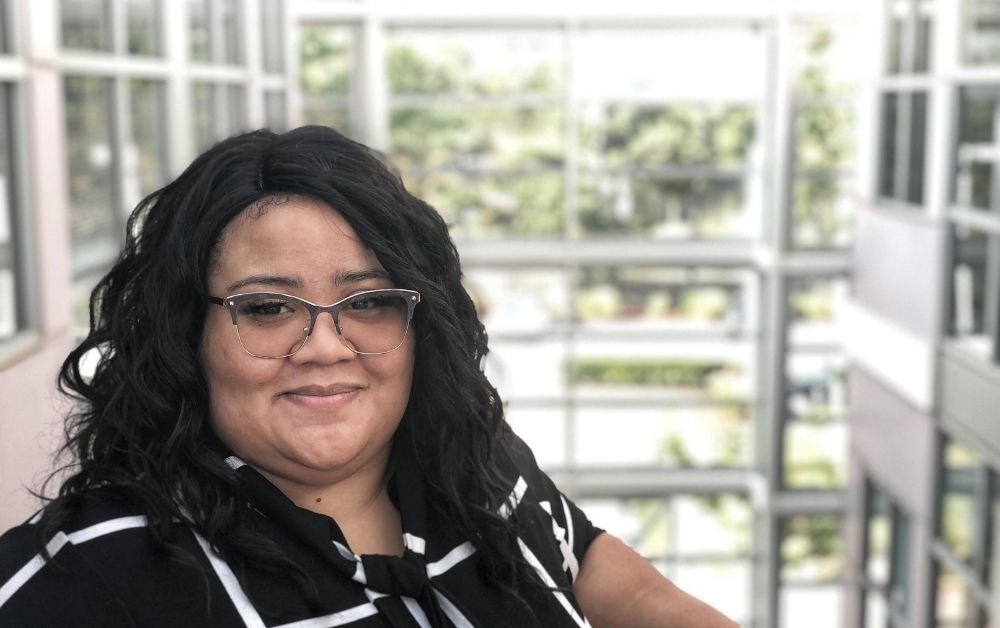Some would say that recovery is not just about overcoming addiction and if you really think about it, we are all in recovery from something. Whether it is the loss of a loved one, the aftermath of toxic relationship, or childhood trauma, we all have gone through times in our lives that we are recovering from. At relink.org, we always strive to meet people’s needs wherever they are at on their pathway to living a restored life. We also want to share stories of those who have found recovery and are passionately working to to make a difference in the lives of others. Throughout all my interviews with those in recovery, a common thread seems to be resilience. It takes great strength to overcome trauma and embrace recovery.
“I was raised in this field.”

Recently, I had the honor of sitting down to interview someone who showed me so much resilience that, while listening to her story, there were several times when I was almost brought to tears. Nafisah Alim, lifelong student, mother of five and guardian to others, grandmother, clinician, and founder of People Places and Dreams is an inspiration to many. She’s an inspiration not only because of the work she is doing today, but because she is a survivor, a fighter for what she believes in, and has found recovery from incredible trauma. I asked Nafisah how she ended working in the mental health and recovery field and she said “I was raised in this field.” Nafisah grew up spending time off and on in Cleveland, OH and Philadelphia, PA. Her mother (pictured left) was inflicted with schizoaffective disorder and her father, who suffered from addiction, was not in the picture. The second oldest of eight siblings, Nafisah experienced little, if any stability when she was a kid. She was chronically homeless, constantly moving from place to place, and staying with one relative or another.
When she was 14 years old, Nafisah was raped twice in the same year. Once by a stranger and once by someone she knew in the neighborhood. This experience lead to self-blame and anger, but somehow she remained strong in her desire to finish school. In spite of her circumstances, Nafisah continued to excel in the honors program and maintained all A’s. At 16 years, old after having her first child, Nafisah withdrew from school and chose to graduate with her GED. Soon after, she received special permission to start taking college classes at Tri-C. This is where she was first introduced to Psychology and began to learn about herself and others in her community. Nafisah learned why she was angry, and potential reasons why others did the hurtful things they did to her. She started to heal and see that those who hurt her were victims themselves. She started to forgive them.
“I needed to forgive him otherwise it would weigh on me.”
Nafisah shared with me that she even forgave the man in her neighborhood who raped her. It had been years, when one day she saw him out in the community asking for money. He had been in jail and now was homeless and using substances. Nafisah said that she saw him and felt bad for him. He walked up to her and she gave him $5. He said “thank you Nafisah” and walked away. Nafisah’s partner who was with her asked who that was and she told him. She said she didn’t know why, but she felt like she needed to give him money, she just needed to. She said “I felt like maybe he was still beating himself up for what he did to me” and “I needed to forgive him otherwise it would weigh on me.”
Nafisah saw the man one more time and he seemed to be doing better, he was in a treatment program. I asked Nafisah to share more about what drove her to forgive him. She said that the first time she saw him after all those years, she knew something had happened to him and she didn’t want to add to it by not forgiving him. She saw a broken person and she didn’t know his reason for any of the things he had done. She said “I couldn’t beat him up while he was down”. Nafisah felt like her forgiveness had maybe made him want to do better. She started to realize that every time she helped someone, it made her feel better and it freed her, and that’s what she wanted to do with her life.
“I would come into work and ask ‘where is my favorite person today?'”
Nafisah has worked in the mental health and recovery field for over 20 years. Nafisah is truly a lifelong student and education is extremely important to her. As a working mother of five, in 2007 Nafisah finished her bachelor’s degree in psychology and sociology. She continued on to pursue a Master’s in Psychology. She is a Licensed Chemical Dependency Counselor with a specialty in Gambling and a Certified Peer Support Supervisor. Today, she is getting ready to complete her Executive MBA at Howard University.
Nafisah started as a case manager but has held many different positions in the mental health field. In the beginning of the opioid epidemic when overdoses were on the rise, Nafisah worked as a medication assisted treatment counselor at a clinic in Columbus. She shared how the nature of that job was life and death every day. Every time someone leave the clinic, Nafisah knew it could be the last time she would ever see them. She said “I would come into work and ask ‘where is my favorite person today?’” and find out they were gone. She made a constant effort to tell clients the positive impact they had on her and on the world to get them to just come back the next day, to not use, and to stay alive. Even though there are challenges in her role now overseeing staff, losing people and seeing the loss of potential for someone’s life is the hardest part about working in this field.

Through years of experience on all sides of the mental health world, from a PTSD diagnosis herself, to an advocate for her mom and others, to a clinician, and as an administrator, Nafisah has gained understanding of what quality treatment and care is. She said that she has always identified more with clients than clinicians, which is why peer support work calls her. In 2019, she started People Places & Dreams, a Peer Support driven outpatient treatment program with offices in Cuyahoga County and Franklin County. They currently have over 25 staff members and nearly 90 clients.

Peer support, where those in recovery walk alongside others throughout the treatment process, is a fairly new type of program in the behavioral health field and Nafisah said that she wants to set the bar on what it should look like, but she isn’t stopping there. Her plans for the coming months and years include the opening of a Peer Center that offers support groups all day long and a Marijuana Treatment Center. She also is working collaboratively with other organizations on means to cover costs of recovery housing for clients. Just this week, People Places and Dreams announced the opening of their first Marijuana/ MDMA Intensive Day Program, “MID-Program” (pictured above). Nafisah said that she is grateful for the organization’s success even amidst COVID-19. They are now offering peer support, case management, recovery house support, and clinical treatment in person and via tele health, and all staff is equipped with PPE.
“I feel like I have a responsibility to give back to the community that gave me what I needed to get well”
I asked Nafisah what has given her the drive and resilience over the years to keep moving forward with the trauma she experienced. She said “I would look at everyone around me and I just knew that I didn’t want to be stuck and I didn’t want to be a victim of what happened to me. Because none of it defined me.” She also found her purpose, stating “I feel like I have a responsibility to give back to the community that gave me what I needed to get well” and that she is fulfilled knowing that whatever she does is going to live on in somebody’s life. She shared that “all we are is our foot print and whatever we leave behind is our life and our legacy”.

“Whatever you have done up until now is done, but you have a choice today.”
Finally, Nafisah shared with me her passion about not separating addiction from mental health. Her message to those reading this was not to put recovery in a slot, it can be a lot of things, that “recovery is an ongoing process, don’t label yourself and limit yourself”. “Whatever you have done up until now is done, but you have a choice today.” I am beyond honored to share Nafisah’s story with our readers and I hope that if you are struggling, this helps you know that you can get through today. You can do more and make an incredible difference in this world. If you would like to get in touch with Nafisah you can reach out to her or visit People Places and Dreams online.
To make sure you don’t miss future articles, like and follow us on Facebook today!

About the Author
Bethany Friedrichsen is the Statewide Coordinator for relink.org. She has a background in psychology and has been working for the past three years in the addiction recovery and reentry space to create connections for people in need to the caring resources in their community.


Recent Comments